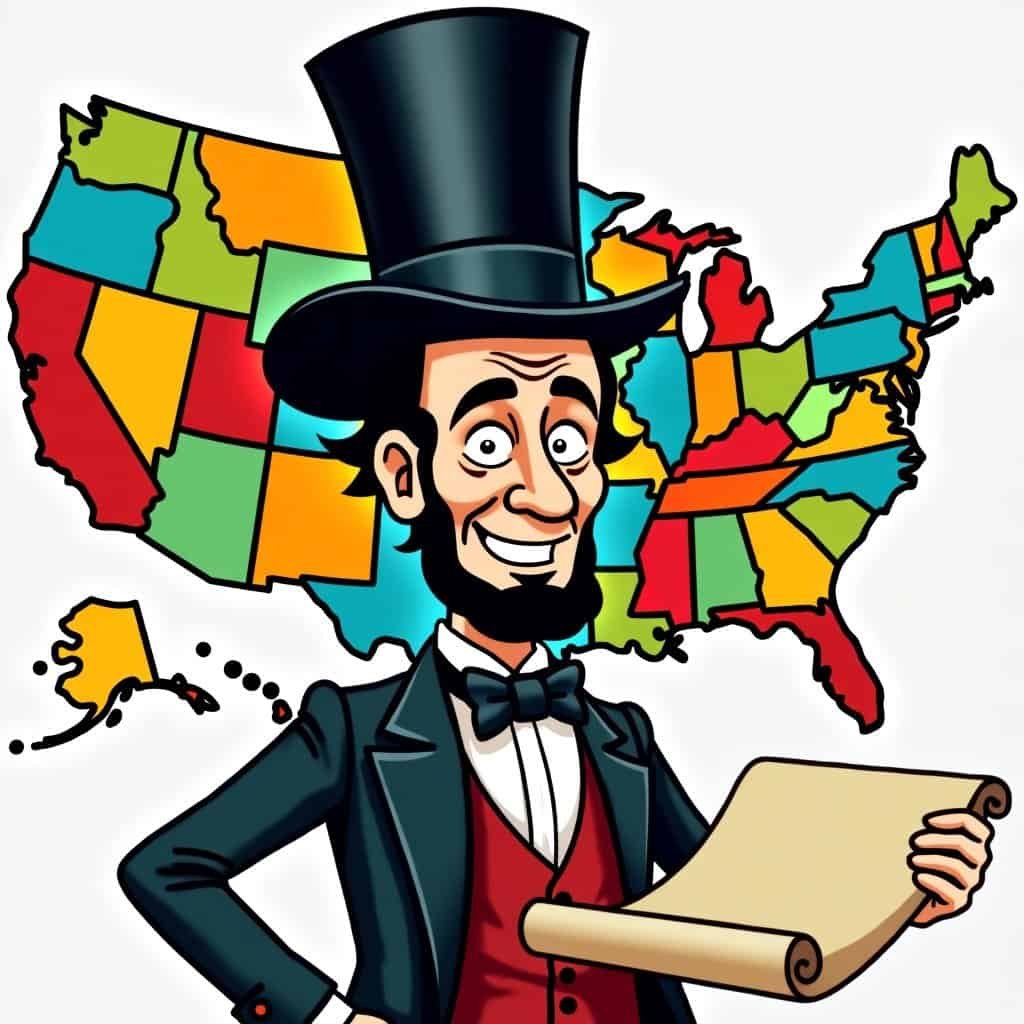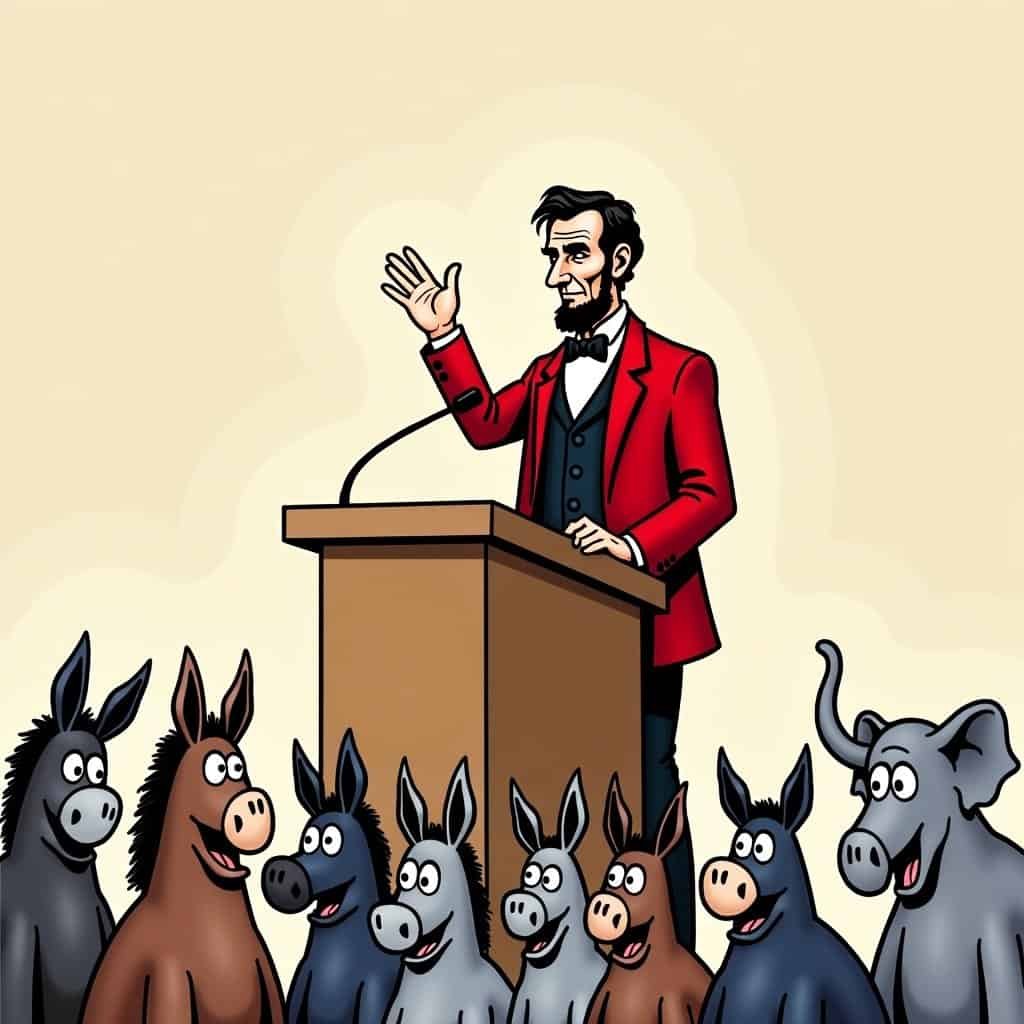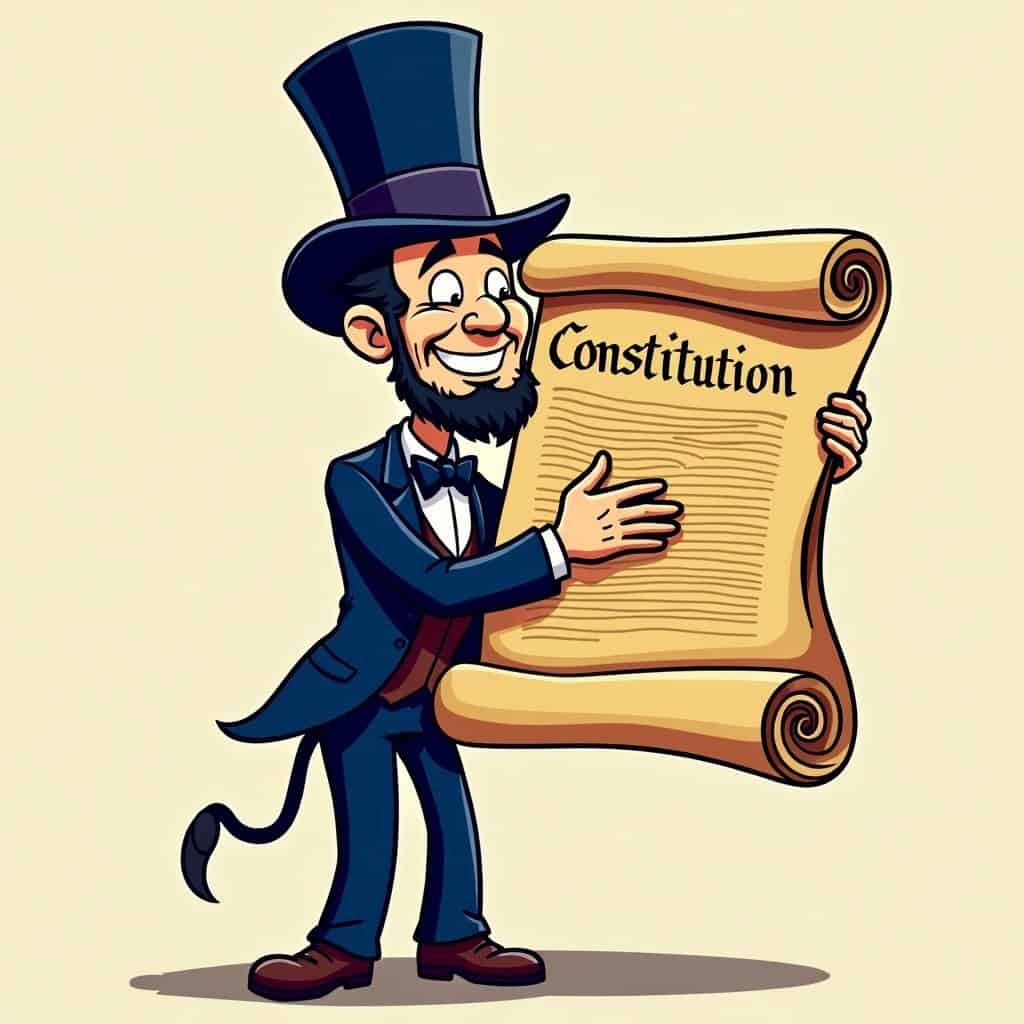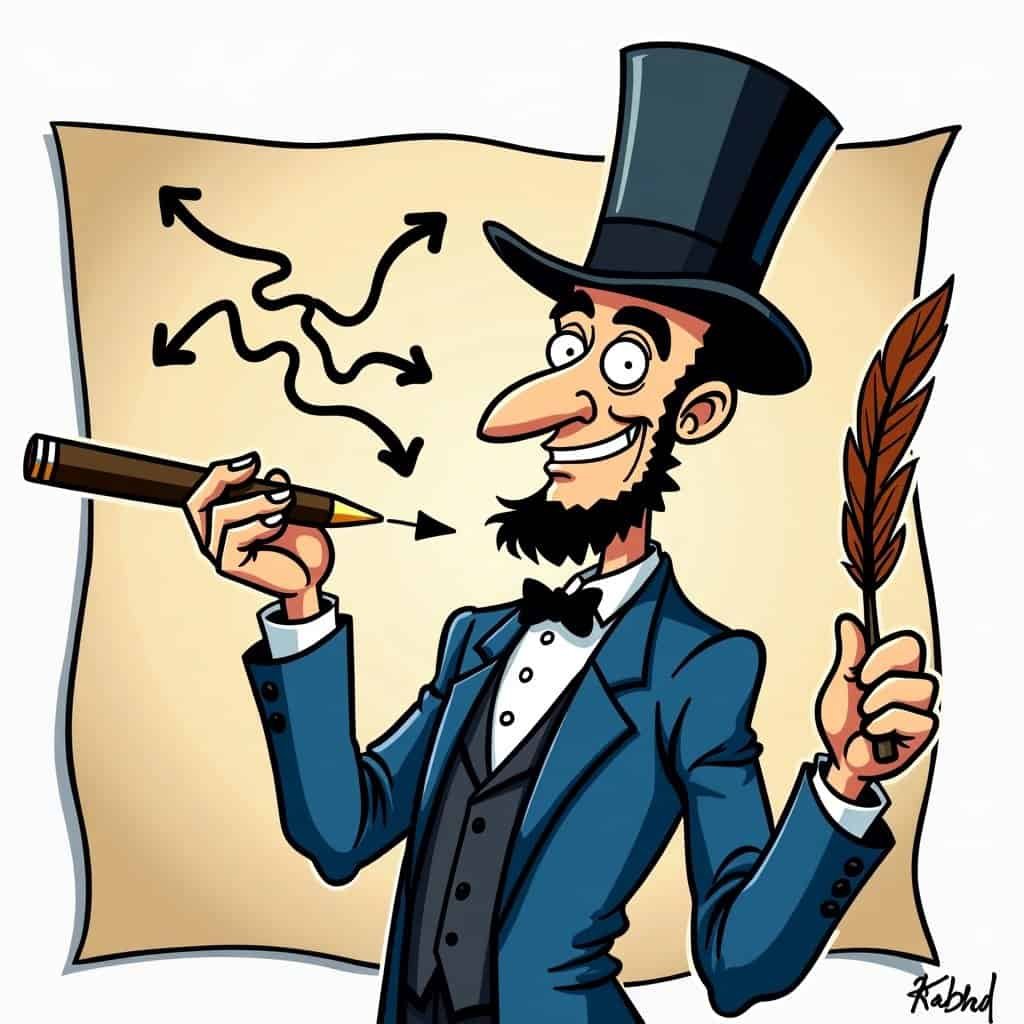Ah, the paradox of federal power over states! It’s a tale as old as time, as satisfying as grandma’s apple pie. Let’s unpack this story, kicking off with none other than Abraham Lincoln. A man whose hats were as tall as his ideas about federal responsibility were ambitious, if not downright presidential!
Picture this: on a cool evening, with civil war looming but unity still a dream, Abe sat pondering, maybe over a plate of ham and beans, about the roles states and that all-knowing federal body should play. Lincoln didn’t tiptoe around the issue like a politician trying not to ruffle feathers. Nope! He jumped in with both feet, making sure states knew who wore the pants in this relationship.
From a right-wing viewpoint, you might think Lincoln was the spicy jalapeño in a bland state salad, stirring things up. His Union crew made it crystal clear – no state was going to pack up and leave on a whim. This wasn’t a yard sale, after all! Lincoln saw federal authority as the heavyweight champ in the wrestling match of governance. When states got a bit too frisky with their ideas about freedom, Honest Abe reminded everyone that this was a team sport, not a free-for-all game of musical chairs.
Lincoln’s Approach: A Balancing Act
Oh, how today’s progressives would love such intervention! But let’s not forget that under the unity Lincoln stitched into the nation’s quilt was a conservative boot that kicked any notions of secession to the curb. His presidency, in all its top-hatted glory, was a shining example of federal power keeping rebellious states in line.
Lincoln’s Balancing Act: Federal Power vs. State Rights
| Federal Power | State Rights |
|---|---|
| Preserved Union | Respected local governance |
| Enforced federal laws | Allowed state-level decision making |
| Centralized military control | Maintained state militias |
Think of Lincoln’s strategy like a BBQ chef cooking for every state at once. Some like their ribs spicy, some mild, but at the end of the day, it’s one platter for all. Abe’s actions during those tumultuous times set a precedent, laying the groundwork for a nation where the Fed’s voice wasn’t just heard; it echoed like a thunderclap. Sure, right-wing values champion state-led governance and eye centralized power with suspicion, but Abe showed a knack for uniting states against a common threat.
Today, you might say his approach mixed conservative ‘state-knows-best’ thinking with a dash of federal oversight, like adding a pinch of salt to bring out the flavor – necessary if stubborn states were going to swallow it without a fuss.
Lincoln’s Legacy: Unity Through Strength
But let’s be honest: history has taught us that when the news talks about federal authority, a smart cookie will remember good old Abe from Illinois, the rail-splitting president who got that sometimes, the best way to keep everyone in line isn’t through bribes or threats, but a firm handshake backed by Yankee grit. As Abe might have quipped in that deep, booming voice of his, ‘For those clinging to states’ rights, keep that campfire burning, ’cause the North means business!’
So keep those fires stoked, remember the lessons, and as we march forward, raise a glass to Lincoln’s dream of a nation finding strength in unity without losing its independent spirit. Here’s to Abe – the federalist who walked the tightrope between union and individuality like a circus performer with nerves of steel and a heart of gold.






